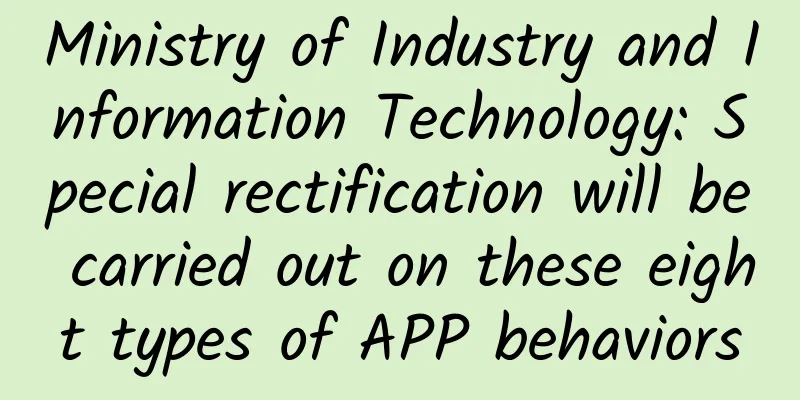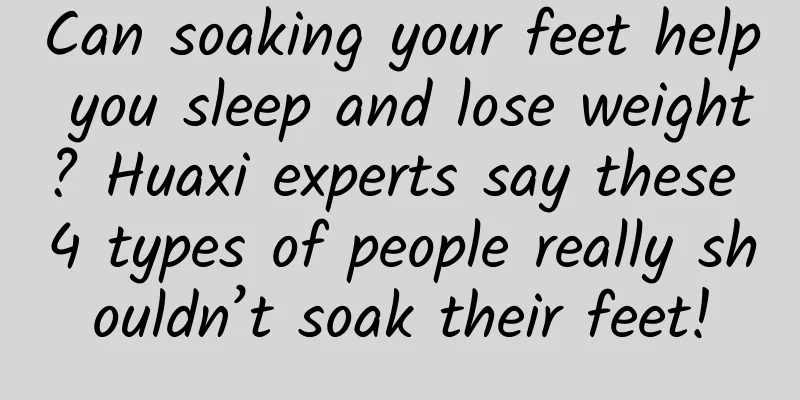Ministry of Industry and Information Technology: Special rectification will be carried out on these eight types of APP behaviors

|
On November 25, the Ministry of Industry and Information Technology issued the "Notice on Carrying out Special Remediation Work on APPs that Infringe User Rights and Interests", launching a new round of supervision, inspection and standardized remediation of APPs' illegal collection of personal information, excessive rights requests, and frequent harassment. The notice pointed out that eight types of APP violations were included in this round of rectification, including: 1. "Collecting personal information without permission." This means that the APP collects user personal information without clearly informing the purpose, method and scope of collecting and using personal information and obtaining the user's consent. 2. "Collection of personal information beyond the scope". This means that the APP collects personal information that is not necessary for the service or has no reasonable application scenario, and collects personal information beyond the scope or frequency, such as address book, location, ID card, face, etc. 3. " Sharing with third parties without permission ." This means that the APP shares and uses user personal information with other applications without the user's consent, such as device identification information, product browsing history, search and usage habits, and lists of frequently used software applications. 4. " Forcing users to use the targeted push function ." This means that the APP uses the collected personal information such as user searches, browsing history, and usage habits for targeted push or precision marketing without informing the user or not clearly indicating it, and does not provide an option to turn off the function. 5. “No permission, no use.” This means that when the APP is installed and running, it asks the user for permissions that are irrelevant to the current service scenario. If the user refuses to authorize, the application will exit or close. 6. “ Frequent application for permissions ”: After the user explicitly refuses the permission application, the APP frequently applies for permissions that are irrelevant to the current service scenario, such as address book, location, SMS, recording, camera, etc., to harass the user. 7. " Excessive request for permissions ". This means that the APP applies for permissions to open the address book, location, SMS, recording, camera, etc. in advance when the user is not using the relevant functions or services, or applies for permissions to open the address book, location, SMS, recording, camera, etc. beyond its business functions or services. 8. “Difficulty in account cancellation”: The APP does not provide account cancellation service to users, or sets unreasonable obstacles for the cancellation service. |
Recommend
After disassembling the iPhone 11 Pro Max, they discovered these secrets
Your iPhone 11 may have just arrived, but the &qu...
Qualcomm to reduce charges for CDMA terminals due to antitrust pressure in China
Qualcomm has finally decided to change its "...
Sogou Advertising Strategy Case
Let me first talk about two cases to give you an ...
Wow! It turns out that our food contains so much "technology and hard work"!
Reviewer: Wang Guoyi Postdoctoral fellow in Nutri...
Uncovering the secrets of Samsung’s empire: more than just selling phones
As you know, according to a report recently relea...
The stories about animal doctors that I heard since childhood turned out to be from Putian!
The most hated fraud is that in the medical field...
In the future, GAC New Energy will launch at least two new products every year to make electric vehicles no longer modified cars.
With the automotive industry showing new technolo...
Exposed! Some socks contain excessive amounts of carcinogenic dyes! Choosing socks is a science...
Experts in this article: Liao Jie, PhD, School of...
How much does it cost to develop a mobile game?
Nowadays, most people like to play a few mobile g...
Want to build a brand without a prototype? Stop kidding!
If you are a copywriter, have you received many b...
iOS 17 Beta 5 updated with multiple changes!
Early this morning, Apple pushed the iOS 17 Beta ...
38 new media trend predictions for 2020!
What is the hottest new media in 2019? When you m...
6 major misunderstandings about the live streaming sales trend
There is no doubt that live streaming sales is a ...
With a range of 530 km, equipped with Tencent car networking, and 1.32 times the subsidy, Trumpchi GE3 530 starts pre-sale
With the gradual decline of new energy vehicle su...









